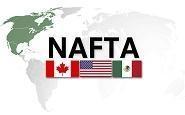Government/Policy

March 27, 2018
NAFTA Resolution Sought by Tariff Exclusion Deadline
Written by Sandy Williams
U.S. Trade Representative Robert Lighthizer wants to wind the NAFTA negotiations up by May 1, the day the temporary tariff exclusions expire for Canada and Mexico.
Sources told Inside U.S. Trade that Lighthizer informed his NAFTA counterparts he wants to announce an agreement by March 31 and have the legal review completed by the beginning of May.
The seventh round of discussions are tentatively scheduled for April 8 in Washington, D.C., and the leading negotiators have agreed to complete seven more “modernization” chapters before the round commences.
Sources say Lighthizer is discouraging the idea of holding an eighth round of talks, preferring to conclude the negotiations through meetings with his counterparts and intersessional conversations.
The U.S. seems to be softening on at least one of the more contentious issues under negotiations. Lighthizer said he would consider dropping his demand for 50 percent U.S. content in automobiles if the regional content is pushed closer to 85 percent and if steel and aluminum are added to the tracing list. He also, reportedly, is demanding wages be counted in the NAFTA rules of origin to encourage use of American parts.
The investor-state dispute settlement and government procurement are now the two hot topics in the negotiations. Lighthizer faced strong opposition from Congress regarding his “opt-in” stance on ISDS.
“Without ISDS, Americans’ property is left unprotected against discrimination, foreign seizure, regulatory abuses, and other forms of unfair action,” said House Ways & Means Committee Chairman Kevin Brady (R-TX) during hearings last week. “Who has their back? The answer should be America has their back.”
Lighthizer responded that U.S. sovereignty was compromised by ISDS.
“There is no threat to sovereignty,” responded Brady. “Foreign investors have no more rights than American investors because in our country you have the greatest standards and protections for property rights and investment rights in the world, bar none.”
“Secondly,” Brady added, “your client is Congress.”
Lighthizer argued that ISDS encourages companies to move to Mexico and that it is Congress’ responsibility to “make the U.S. more competitive so that that isn’t a problem.”
“Whatever happens on ISDS, the kinds of issues that members are concerned about in terms of U.S. investment overseas will be able to be handled within the context of what we call Chapter 20,” which covers state-to-state dispute settlement, Lighthizer said. “It isn’t like we’ll be in a position where there will be no recourse.”
Lighthizer is also holding firm to his demand that the U.S. limit government procurement access for Canada and Mexico at the combined value of their procurements markets on a dollar-for-dollar basis.
Canada and Mexico continue to object to a U.S. proposal for a five-year sunset clause that would terminate the agreement unless all three parties agree to extend it. Canada offered a counterproposal that would allow for a mechanism to review the agreement on a periodic basis.
Congress must approve the new NAFTA ageement, and whether Lighthizer will be able to put together a deal that can secure congressional approval remains uncertain. Other sources worry that Trump will sign a notice of withdrawal from NAFTA as a symbolic gesture on May 1. Lighthizer confirmed before the Senate Finance Committee that a withdrawal is not off the table.







